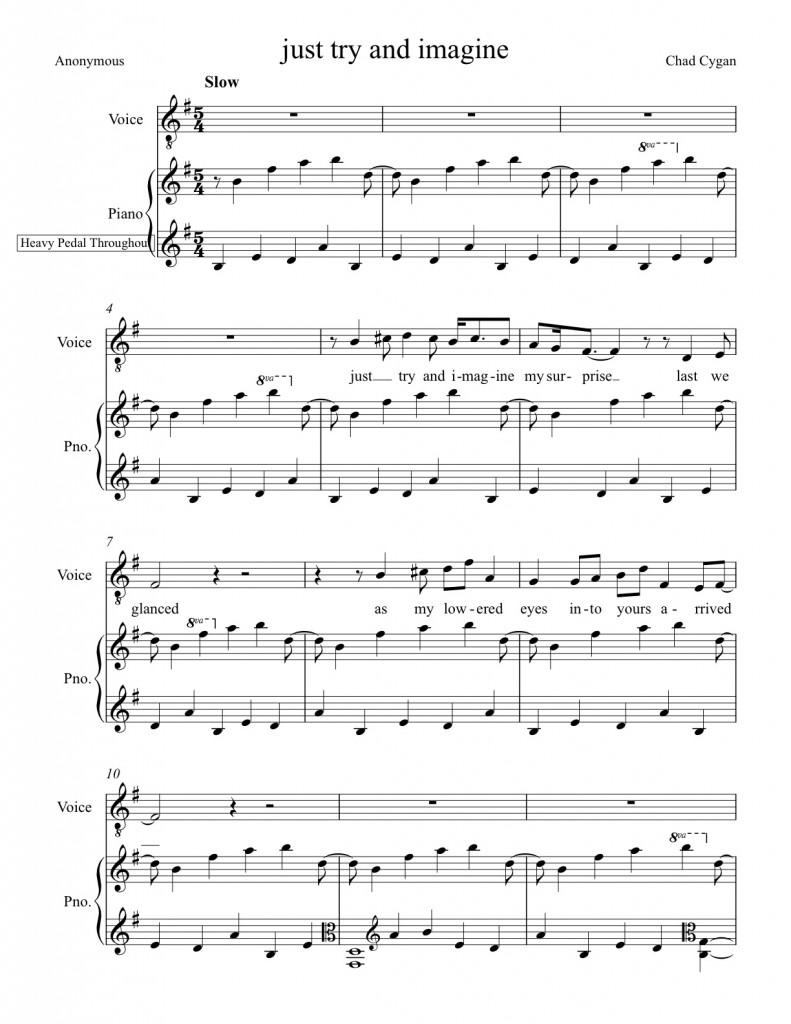All, I hope class was joyous last night. After getting home lugging my ‘historically accurate Schubert edition’ from which my pianist played, I downloaded the precise score for free here. while trying to wake up I stumbled upon a NY Times article discussing the very same site where I was getting free sheet music from.
Per much discussion over Google Books, Amazon etc. the rights management of items came up often in last semester’s class. However, since I am currently working on my text/IPA project I would like to link in scores like those on IMSLP.org by translations for a more direct comparison to the set text.
I know this is not part of this week’s reading and that I am not the motivator, but I value your thoughts and opinions and think your feedback can help me in putting together my project update for this coming week’s class. Thus, I have a handful of questions for all of you…
1. Do you think that publishers will actually be able to shut down a site like imslp.org because they retain control over publishing rights to works created by composers who have been dead for over 200 years? (i.e. Mozart)
2. From an academic perspective, do you find educational value in having all materials (poem, translation, IPA, video and audio) in one place for students to analyze through a multi-media interaction? Or, do you find value in the search a student much go through to locate these materials? Pros and cons….
Example:
This is the first page of a song setting of a poem I literally found on the wall of a bathroom stall while I was a student at Juilliard.
The original text looked like this:
just try and
imagine my surprise
last we glanced as my
lowered eyes
into yours arrived
and now you
know why.
I found the author after this was premiered (he was actually in the audience) and he let me know if was a phonetic acrostic poem (read downward through the first phonetic sound of each line) dedicated to a girl named Gillian who was also at the premiere performance. Awkward…
The IPA rendition looks like this:
dʒʌst traɪ ænd
ɪmædʒɪn maɪ sɚpraɪz
læst wi glænst æz maɪ
loʊɚd aɪz ɪntu
jɔɚz əraɪvd
ænd nɑʊ ju
no waɪ
Word doesn’t like this, so I had to go here to type that. If I did this in German I would have to specify the regional dialect to use this IPA and if it was in French there would be myriad parentheses around each symbol because the French are just like that. The English posted here is exceedingly simple.
I could include audio of this being sung, but I lost it, so perhaps I’ll just play and sing iPad style in class on Tuesday. Nevertheless, a comparative YouTube video of a good performance (diction-wise) of this could be embedded next to the score as could the audio as well.
3. With reference to the utilities compiled last week, can you suggest additional tools that would combine these multimedia elements into a pedagogically sound presentation?




Frank, thanks for the humor. Ironically the symbols used in your IPA are not terribly bad for lyric diction (singing, instead of speaking/reciting). The greater irony comes from the fact that I grade simple English diction assignments every week and the kids use the same site you located and it just means they will probably fail a written exam in class. Thanks technology.
There are actually billions of variations I could add to this (and symbols I use which are not on my previously posted link), however this is more like what I would expect in a lyric diction translation:
3. With reference to the utilities compiled last week, can you suggest additional tools that would combine these multimedia elements into a pedagogically sound presentation?
3. [wiθ rɛfərɪns tu ðə jutɪlətiz kəmpaɪld læst wik kæn ju səgd͡ʒɛst ədɪʃənəl tulz ðæt wʊd kəmbaɪn ðiz mʌltimidiə ɛləmɛnts ɪntu e pɛdəgɔd͡ʒəkli sɑʊnd prizɛntɛɪʃən]
P.S.
[ɛvriwʌn noz frɛɪnk fɑɚts ɪn klæs]
—
3. With reference to the utilities compiled last week, can you suggest additional tools that would combine these multimedia elements into a pedagogically sound presentation?
—
3. wɪθ rɛ́fərəns tú ðə jutɪ́lətiz kəmpájld lǽst wík, kǽn jú səgdʒɛ́st ədɪ́ʃənəl túlz ðǽt wʊ́d kɑ́mbajn ðíz mə̀ltimídiə ɛ́ləmənts ɪ̀ntú ə pedagogically sáwnd prɛ̀zəntéʃən?
From http://upodn.com/ (I don’t know how well it works.)